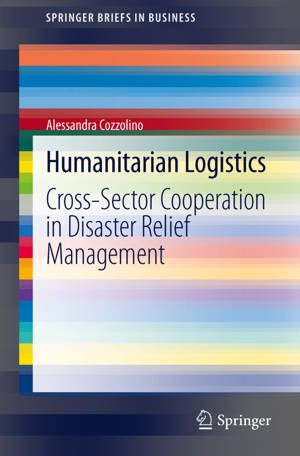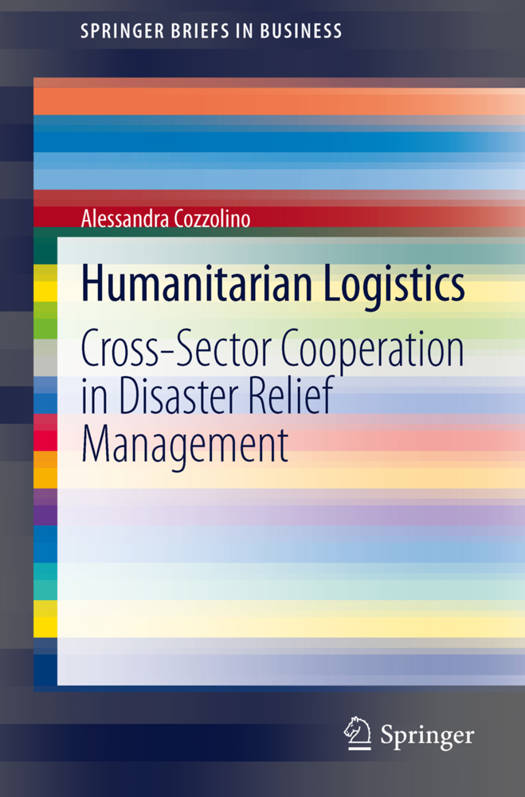
Je cadeautjes zeker op tijd in huis hebben voor de feestdagen? Kom langs in onze winkels en vind het perfecte geschenk!
- Afhalen na 1 uur in een winkel met voorraad
- Gratis thuislevering in België vanaf € 30
- Ruim aanbod met 7 miljoen producten
Je cadeautjes zeker op tijd in huis hebben voor de feestdagen? Kom langs in onze winkels en vind het perfecte geschenk!
- Afhalen na 1 uur in een winkel met voorraad
- Gratis thuislevering in België vanaf € 30
- Ruim aanbod met 7 miljoen producten
Zoeken
€ 69,95
+ 139 punten
Omschrijving
Humanitarian logistics has received increasing interest both from logistics academics and practitioners as a result of the dramatic increase in both natural and man-made disasters. The impact on affected populations can be all the more limited as much as the logistics operations in response to emergencies are effective and efficient. Collaboration with various relevant actors involving in the emergency resolution can help to reduce costs, increase speed, and improve the leanness/agility level in the humanitarian supply chain, and viceversa, poor coordination among them is cited as an explanation for performance gaps. As disasters become increasingly complex better collaboration not only with government agencies, military units, humanitarian organizations, but also through partnerships with private business becomes more and more important. However, such partnerships are not easy as organizations in the two sectors are extremely different. The main aim of this study is exploring more in depth the partnership between profit and non-profit in emergency relief operations, with a specific attention to the cross-learning potential for both the logistics service provider (profit) and the humanitarian organization (non-profit).
Specificaties
Betrokkenen
- Auteur(s):
- Uitgeverij:
Inhoud
- Aantal bladzijden:
- 48
- Taal:
- Engels
- Reeks:
Eigenschappen
- Productcode (EAN):
- 9783642301858
- Verschijningsdatum:
- 27/07/2012
- Uitvoering:
- Paperback
- Formaat:
- Trade paperback (VS)
- Afmetingen:
- 150 mm x 226 mm
- Gewicht:
- 113 g

Alleen bij Standaard Boekhandel
+ 139 punten op je klantenkaart van Standaard Boekhandel
Beoordelingen
We publiceren alleen reviews die voldoen aan de voorwaarden voor reviews. Bekijk onze voorwaarden voor reviews.









